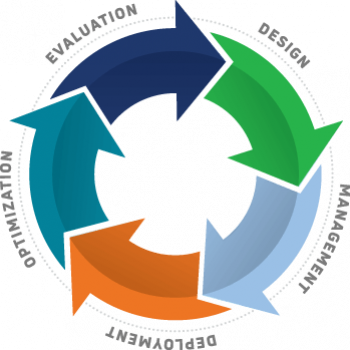We Enhance Sustainable Environments by Infusing Technology Designed to Maximize the Operational Output of Building Efficiency.
Our turnkey services and engineering support capabilities can be provided separately or combined for an integrated solution that delivers the results needed to achieve your optimization goals and objectives.
Turnkey Project Management

End-to-End support from concept and design through project management & commissioning to scope and budget.
building technologies

Our building technologies service can unlock untapped savings by controlling & managing your energy use.
BUILDING INTELLIGENCE

Command center live monitoring, strategic action and service that minimize operational disruptions and optimize performance.
facilities Equipment

Engineered solutions for HVAC, critical power, thermal applications to control temperature, humidity & IAQ.
Semiconductor demand is expected to double by 2025. Electrification is driving much of that growth and will use up to 70% more semiconductor devices than mobile phones, TVs, and PCs combined. With such rapid growth comes an increasing need for action on climate change. Stark Technology is committed to collaborating with semiconductor companies to help them become net zero-emitting operations by 2050.
To get on a net-zero trajectory by 2030, the semiconductor industry would benefit from a coordinated effort to fully apply current strategies while simultaneously developing and adopting new technologies. Semiconductor companies can learn from other industries and how they use this strategy to make an impact. The semiconductor industry has a unique opportunity to lead in reducing carbon emissions. The semiconductor industry is the largest energy consumer, with its global footprint for electricity consumption increased by about 50% between 2014 and 2020 as demand for new technologies continues to grow. The semiconductor industry is also one of the fastest-growing industries in terms of greenhouse gas (GHG) emissions.
A net-zero scenario is not just an environmentally friendly option. It’s a business strategy. By 2050, every semiconductor company would need to shift toward a more proactive and innovative approach—and that means making a more significant investment in decarbonization, innovating new supply chain models, and showing a willingness to experiment. The semiconductor industry is a key driver of economic growth, but it also faces significant challenges in terms of its impact on the environment. The semiconductor industry consumes about 10% of the world’s electricity and generates more than 2 million tons of CO2 yearly.
Stark Tech has worked with many companies and organizations to help them reduce their environmental impact. From establishing sustainability goals and improving processes to identifying opportunities for process simplification, Stark Tech can help you create a roadmap of sustainable improvements that will save money and make your company a leader in sustainability.
Our clients recognize and value our distinctive and validated approach. No other organization matches our combination of building and energy systems expertise, analytics platform, engineering, & IT network professionals.
In a quick 16-week turnaround, Stark Tech was able to install dehumidifiers to maintain tight humidity control in order to achieve the cleanroom conditions needed to convert the 306,000 sq. ft. warehouse into a mass production site.
In a green architecture design, Stark Tech incorporated a vegetated lower roof and photovoltaic collector on the upper roof with integrated temperature and lighting controls to maintain parameters that save energy and cost.
The project is a 350 scfm waste water treatment plant. “The ability to capture biogas from our sewage (and transform it into RNG) is the type of innovative project that will help us reach our renewable energy goals sooner rather than later.
Centralizing data in manufacturing plants can reduce machine downtime by 50% annually.
According to Accenture research, semiconductors designed for reuse can boost profits by 16%.
Modifying business models in the semiconductor industry can reduce CO2 emissions by 45%.
According to a Harvard study, the information technology industry is responsible for 3% of CO2 emissions.

Connect with a Stark Rep Today
Copyright © 2024 | All Rights Reserved
CONNECT WITH A STARK REP TODAY
When you speak to a representative about sustainable initiatives for energy efficiency, you gain access to tailored expert knowledge and guidance. You’ll quickly discover innovative technologies and cost-saving measures that empower you to make informed choices.